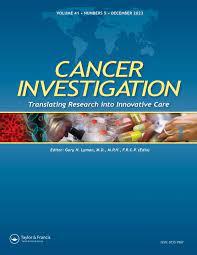The LRG publishes, “Gastrointestinal Stromal Tumor Patients with Molecular Testing Exhibit Superior Survival Compared to Patients without Testing: Results from the Life Raft Group (LRG) Registry”
The Life Raft Group’s recent publication highlights the importance of mutational testing in GIST. The introduction of tyrosine kinase inhibitors (TKIs) has revolutionized the treatment and significantly improved the survival of patients with GIS. Prior to the advent of TKIs, GIST was often difficult to treat effectively, and surgical resection was the primary treatment option. However, the discovery of specific driver mutations in GIST led to the development of targeted therapies, particularly TKIs, which have fundamentally changed the management of this disease.
Over the years multiple clinical studies have demonstrated the efficacy of TKIs in GIST patients. These drugs specifically target and inhibit the activity of mutated tyrosine kinases, such as KIT and platelet-derived growth factor receptor alpha (PDGFRA), which play crucial roles in the development and progression of GIST. By blocking these aberrant signaling pathways, TKIs effectively suppress tumor growth and prolong patient survival.
One of the key advancements in the field of GIST treatment is the identification of different molecular subtypes of the disease. Molecular testing, including mutational analysis, has become increasingly important in diagnosing and managing GIST. It involves analyzing the genetic alterations present in the tumor cells to determine the specific driver mutation driving the cancer. This information has significant clinical implications.
It is noteworthy that only a fraction of metastatic GIST patients in the United States (approximately 30%) undergo mutational testing of their tumors. This highlights the need for greater awareness and utilization of molecular testing to fully harness the benefits of targeted therapy. Mutational testing is crucial for identifying the different molecular subtypes of GIST, as each subtype exhibits distinct characteristics and clinical implications.
The specific mutational profile of a GIST tumor influences the selection of initial therapy and subsequent lines of treatment. Certain mutations render tumors more sensitive to TKIs, while others may confer resistance to specific drugs. Consequently, mutational testing plays a critical role in guiding treatment decisions, enabling clinicians to select the most appropriate TKI for each patient based on their tumor’s molecular characteristics.
In summary, mutational testing for GIST patients has profound implications for increasing OS and a shift to more effective treatments over time. A lack of mutational testing has consequences. Increased knowledge of mutational status may also increase enrollment in clinical trials and affect the timeline of new treatment approval. To optimize therapy and achieve the best outcomes, GIST patients who have access to the resources should undergo mutational testing. By incorporating mutational testing into clinical practice, healthcare providers can optimize the management of GIST, including the selection of initial therapy and subsequent lines of treatment, leading to improved outcomes for patients.
We would like to thank all our patient registry members for their continued support and contribution of data for this publication.
If you are interested in learning more about the GIST Patient Registry, please contact patientregistrydepartment@liferaftgroup.org




